The Making Of A Myth, Part 7 – Tolkien And The Gospel
 Few people, even those not well-versed in fantasy, will argue against the idea that J. R. R. Tolkien is the master of the fantasy genre. In that he wrote his thoughts about this type of tale in his essay “On Fairy-Stories,” he has become the expert to whom writers turn when wishing to understand the genre better. In this last in the series discussing his essay, we’ve come to the crux of Tolkien’s beliefs.
Few people, even those not well-versed in fantasy, will argue against the idea that J. R. R. Tolkien is the master of the fantasy genre. In that he wrote his thoughts about this type of tale in his essay “On Fairy-Stories,” he has become the expert to whom writers turn when wishing to understand the genre better. In this last in the series discussing his essay, we’ve come to the crux of Tolkien’s beliefs.
First, Tolkien made a case for the place of escape in stories, and Mankind’s desire for it — escape from the ugliness and disruption of modern technology, escape from suffering and ultimately from death, escape from that which binds us, such as the inability to commune with other animals or to explore the sea or fly free.
But more than giving “imaginative satisfaction of ancient desires,” fairy-stories give the “Consolation of the Happy Ending” — as defining of fantasy as tragedy is to the true form of Drama. Tolkien coined the word Eucatastrophe to identify this happy-ending distinctive. “The eucatastrophic tale is the true form of fairy-tale, and its highest function. (emphasis mine)”
There’s more to Tolkien’s happy ending, however, than the idea that the protagonist wins. Rather, the happy ending is closer to a good catastrophe — “the sudden joyous ‘turn’ ” from impending disaster. It is
a sudden and miraculous grace: never to be counted on to recur. It does not deny the existence of dyscatastrophe, of sorrow and failure: the possibility of these is necessary to the joy of deliverance; it denies (in the face of much evidence, if you will) universal final defeat and in so far is evangelium [of the gospel], giving a fleeting glimpse of Joy, Joy beyond the walls of the world, poignant as grief.
It is the mark of a good fairy-story, of the higher or more complete kind, that however wild its events, however fantastic or terrible the adventures, it can give to child or man that hears it, when the “turn” comes, a catch of the breath, a beat and lifting of the heart, near to (or indeed accompanied by) tears, as keen as that given by any form of literary art, and having a peculiar quality. (emphasis mine)
 “A sudden, miraculous grace.” Here is Tolkien’s understanding of the happy ending, in the face of apparent defeat, after the experience of hardship and loss. The reality of the joy is so much greater because of the reality of the deadly circumstances from which the ending turns. How perfectly Lord of the Rings illustrates what Tolkien believed. After all his hardships, Frodo succumbs to the power of the One Ring, only to lose it because his kindness spared his nemesis.
“A sudden, miraculous grace.” Here is Tolkien’s understanding of the happy ending, in the face of apparent defeat, after the experience of hardship and loss. The reality of the joy is so much greater because of the reality of the deadly circumstances from which the ending turns. How perfectly Lord of the Rings illustrates what Tolkien believed. After all his hardships, Frodo succumbs to the power of the One Ring, only to lose it because his kindness spared his nemesis.
In reality, C. S. Lewis’s The Last Battle is an equally good illustration: against insurmountable odds, Aslan turns the very means of defeat into a passage to greatest victory, further up and further in. J. K. Rowling creates this same kind of turn in the last of the Harry Potter books, when Voldemort defeats Harry, but in so doing destroys the final horcrux and brings about his own demise.
As I see it, the real challenge for the fantasy writer, then, is to find fresh ways to turn a story from catastrophe to joy. Tolkien elaborates on this turn from defeat to victory:
Probably every writer making a secondary world, a fantasy, every sub-creator, wishes in some measure to be a real maker, or hopes that he is drawing on reality: hopes that the peculiar quality of this secondary world (if not all the details) are derived from Reality, or are flowing into it. . . The peculiar quality of the “joy” in successful Fantasy can thus be explained as a sudden glimpse of the underlying reality or truth. It is not only a “consolation” for the sorrow of this world, but a satisfaction, and an answer to that question, “Is it true?” (emphasis mine)
The first consideration is, “Is it true in this world?” Hence, in the world of Harry Potter, where witches and wizards can be either good or bad, is the story of Harry’s triumph over Voldemort true in the sense that it has an inner consistency?
 But this truth connected to the eucatastrophe has broader implications: “in the ‘eucatastrophe’ we see in a brief vision that the answer may be greater — it may be a far-off gleam or echo of evangelium [the gospel] in the real world.” Not an allegorical representation but more than a symbolic nod. Rather, this echo or gleam is more nearly a type characterizing reality, just as King David in the Old Testament was a type characterizing Christ, the soon and coming King.
But this truth connected to the eucatastrophe has broader implications: “in the ‘eucatastrophe’ we see in a brief vision that the answer may be greater — it may be a far-off gleam or echo of evangelium [the gospel] in the real world.” Not an allegorical representation but more than a symbolic nod. Rather, this echo or gleam is more nearly a type characterizing reality, just as King David in the Old Testament was a type characterizing Christ, the soon and coming King.
Tolkien concludes:
The Gospels contain a fairy-story, or a story of a larger kind which embraces all the essence of fairy-stories. They contain many marvels — peculiarly artistic, beautiful, and moving: “mythical” in their perfect, self-contained significance; and among the marvels is the greatest and most complete conceivable eucatastrophe. But this story has entered History and the primary world; the desire and aspiration of sub-creation has been raised to the fulfillment of Creation. The Birth of Christ is the eucatastrophe of Man’s history. The Resurrection is the eucatastrophe of the story of the Incarnation. This story begins and ends in joy. It has pre-eminently the “inner consistency of reality.” There is no tale ever told that men would rather find was true, and none which so many sceptical men have accepted as true on its own merits. For the Art of it has the supremely convincing tone of Primary Art, that is, of Creation. To reject it leads either to sadness or to wrath.
It is not difficult to imagine the peculiar excitement and joy that one would feel, if any specially beautiful fairy-story were found to be “primarily” true, its narrative to be history, without thereby necessarily losing the mythical or allegorical significance that it had possessed. It is not difficult, for one is not called upon to try and conceive anything of a quality unknown. The joy would have exactly the same quality, if not the same degree, as the joy which the “turn” in a fairy-story gives: such joy has the very taste of primary truth. (Otherwise its name would not be joy.) It looks forward . . . to the Great Eucatastrophe. The Christian joy, the Gloria, is of the same kind; but it is preeminently (infinitely, if our capacity were not finite) high and joyous. But this story is supreme; and it is true. Art has been verified. God is the Lord, of angels, and of men — and of elves. Legend and History have met and fused.
But in God’s kingdom the presence of the greatest does not depress the small. Redeemed Man is still man. Story, fantasy, still go on, and should go on. The Evangelium has not abrogated legends; it has hallowed them, especially the “happy ending.” The Christian has still to work, with mind as well as body, to suffer, hope, and die; but he may now perceive that all his bents and faculties have a purpose, which can be redeemed. So great is the bounty with which he has been treated that he may now, perhaps, fairly dare to guess that in Fantasy he may actually assist in the effoliation and multiple enrichment of creation. All tales may come true; and yet, at the last, redeemed, they may be as like and as unlike the forms that we give them as Man, finally redeemed, will be like and unlike the fallen that we know. (pp 23-24 — emphases mine)
What do you think? Is Tolkien’s idea of the happy ending possible story after story, or has his end been done so often, grace will no longer be a surprise? Must the fairy story, of necessity, undergo some change in order to remain fresh and interesting, or is the onus on the writer to find ways to make grace still a surprise even when we’re expecting it?

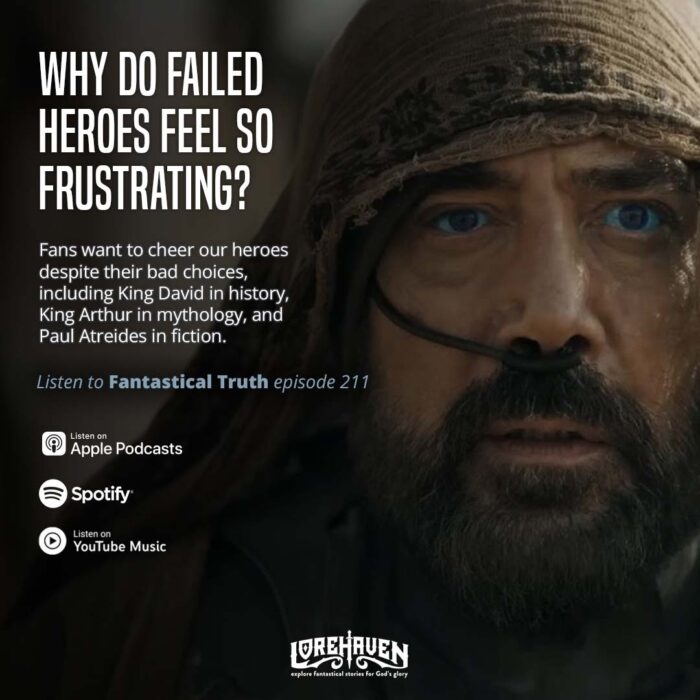

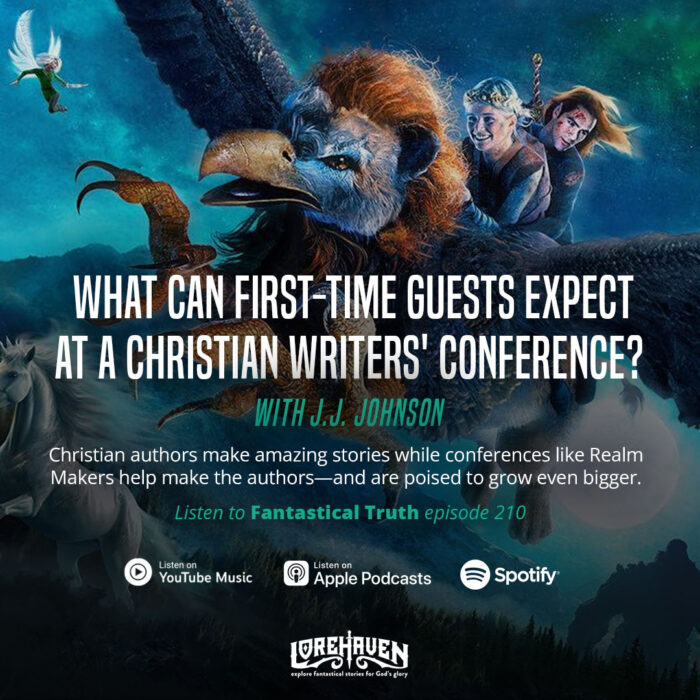






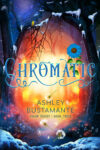



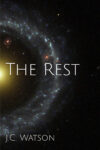




















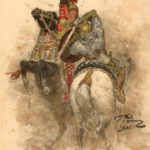
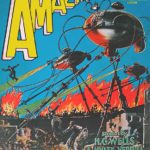
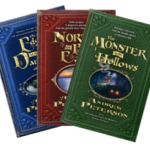



I think that’s your answer right there. There are comedies, a sad story ending in happy, and there are tragedies, happy stories ending in sadness. Even though Lord of the Rings technically has a happy ending, it also has one of the saddest endings. Can you sit through the ending of the movies without getting choked up? I can’t. Heck, I can’t even listen to the music on the soundtrack.
I like stories with happy endings. My sister likes stories with sad endings. (She’s really into Russian literature right now because of her thirst for tragedy.) There are also bittersweet endings, like Ender’s Game, where the world is saved but the hero loses something accomplishing it. I think Lord of the Rings counts as bittersweet. I also think those are the ones that really stick with you the longest.
I tend to write “happy” endings. Stuff works out, but the heroes are irrevocably changed, for better or worse.
So Kessie, if I understand you, your vote is for fairy stories to follow Tolkien’s model with what he called the consolation of the happy ending, the twist at the the end that turned disaster into triumph. But as you say … as he said … these stories are not without their pain. Stop me if I’m putting words in your mouth, but you don’t think there’s anything broken, or done and redone, with that kind of story. It’s still a viable, even desirable tale.
I’d like to believe that too. My view is that the onus is on writers to make those endings true Eucatastrophe without feeling borrowed or repeats.
Becky
I think that’s what I said. I don’t know what I was talking about up there. That’s what I get for trying to write something pithy with a squirming baby in my lap. :-p
It’s funny you would mention this, because I just finished reading the Binding of the Blade series, which has several of the same elements as Lord of the Rings, including a Eucatastrophe.
(spoilers)
The world has been “bound to the blade” since the fallen Titan Malek created weapons. In the last book , All My Holy Mountain, the prophet Benjiah faces Malek with the very first weapon ever made. But instead of fighting, he lays it down. Even though Malek kills Benjaih, that sacrifice enables the restoration of all things.
Galadriel, I’m glad you brought up Binding of the Blade. I was wondering as I answered Kessie if we could think of other stories that accomplished what Tolkien was describing. I thought of Wayne Thomas Batson’s Door Within series. He did exactly what Tolkien described, though it’s got a lot of echoes of The Last Battle. Is that bad? Can we keep the stories coming or are there really only a few scenarios that work if a writer wants to create Tolkien’s Eucatastrophe?
Becky
Wait … a eucatastrophe is just when all the bad stuff comes out right at the end, right? He’s not talking about the Global Reset trope, where the world is reset to paradise?
Anime has done that one to death, and I’m not sure I like it much.
The eucatastrophe isn’t a global reset, as I understand it. But it’s a little more than things turning out right at the end. It has to do with the … how’d he say it a sudden and miraculous grace: never to be counted on to recur. It’s as much in the twist as it is in the happy ending, as much in the aversion of disaster by surprise. And the thing is, it rings true. The reason such endings cause us to choke up or even to cry is that we recognize them as true. And more than true — spiritual, eternal, pictures of God’s hand in our own personal experience, the disaster He prevented in our lives.
Becky
I was thinking about books that have that drastic turnaround at the end, the kind that make you “Catch your breath”.
Eucatastrophes don’t seem to happen in little 200 page novels. They’re usually at the end of trilogies, or entire series. I think you have to have a wide scope, so you can achieve lows and highs that finally achieve the heights of a eucatastrophe. But to have the heights, you have to have the lows, too.
I don’t think every story can have an ending like that. If they all did, then we wouldn’t care, because we’d meet it all the time. Not all the Narnia books had a Last Battle ending. Only the Last Battle did, because it was the end of the series.
Agreed. Binding of the Blade is five 400-page novels, and there are a lot of agonizing book endings, but the happy part….:)
Interesting point about the series. Tolkien never considered himself to be writing a series, so he wouldn’t probably have thought in those terms. But it’s a good point.
Lewis, however … He seemed to manage that poignant joy/sorrow in a few of his books. I know I felt tearfully happy at the end of Dawn Treader, watching Reep-a-Cheep sail off into the sun. There was great joy/sadness in Til We Have Faces and Out of the Silent Planet. My point being, I don’t think it has to be a story of epic proportion. But I do wonder if we saw the kind of twist — joy coming from despair through a surprising and miraculous means of grace — that readers might not become jaded. Might we not love Lewis and Tolkien so much because they accomplished what so few are able to do, or perhaps what so few attempt?
But if more writers, like L. B. Graham, author of the Binding of the Blade series, did go after eucatastrophe would we need something new after a time, or is this so right, and therefore never old, because it mimics the Great Story of miraculous grace?
Galadriel, I read the first in the B of the B series, and the agonizing ending did me in!
Becky
My mom knows it as “That series where the author kills the main characters.” It is worth it in the end.
Ha! I like the way your mom thinks, Galadriel! I was so … frustrated that I’d worked for pages cheering this character on only to have him die. It all seemed so meaningless, so I’m glad to know my assessment wasn’t right in the long run.
Becky
To be fair, I’m the one who gave her that impression.
Hey! I haven’t read those!
You will notice, we did not use names